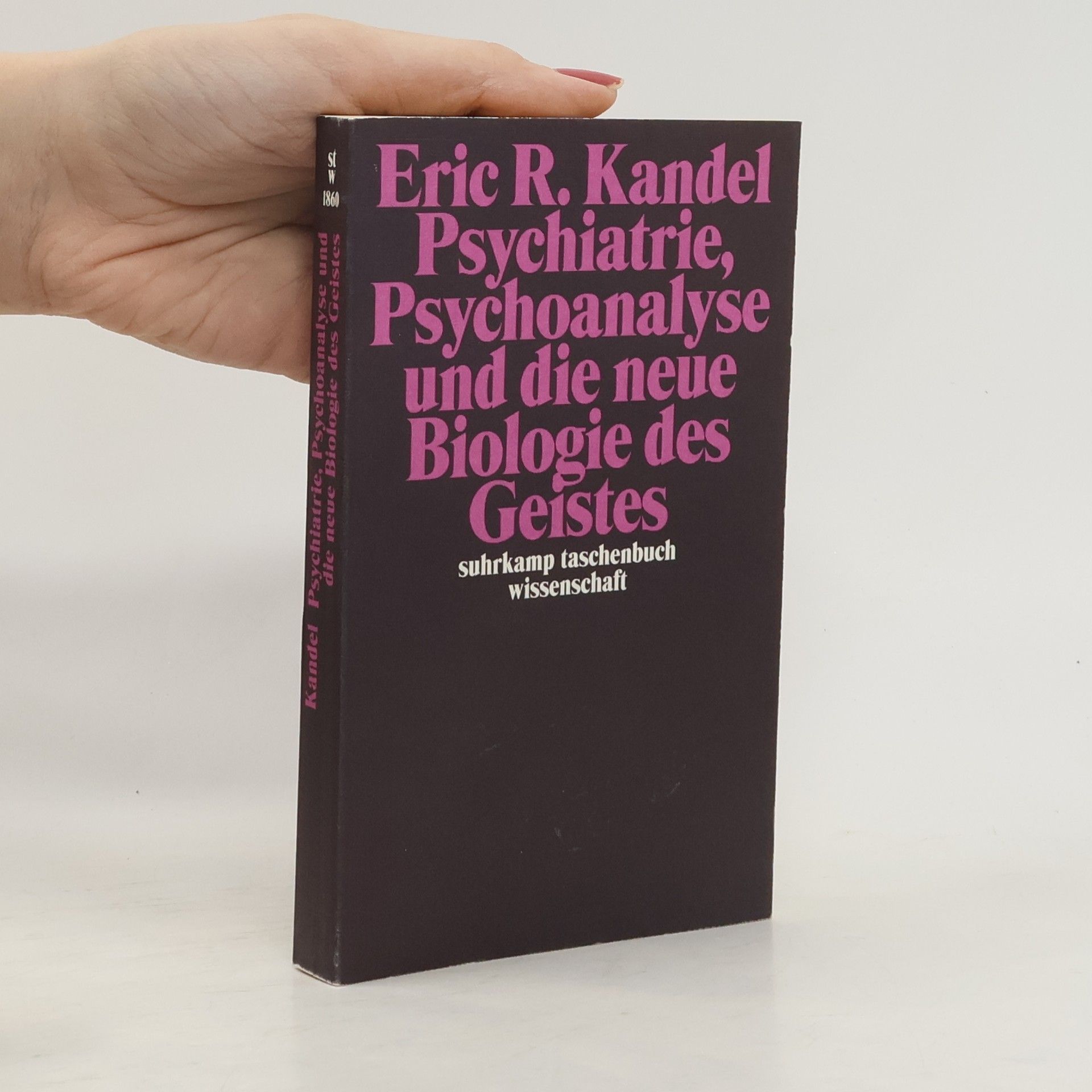This book presents essays by Eric R. Kandel. They vary widely in subject matter, but each essay focuses on the interaction of art and science.
Eric Kandel Book order (chronological)
Eric Kandel is a Nobel laureate whose work delves deeply into psychology and neuroscience. He explores how memory is stored within neurons, uncovering the fundamental biological processes that govern our thoughts and recollections. His research offers a fascinating glimpse into the workings of the mind and how our experiences are shaped at the cellular level.
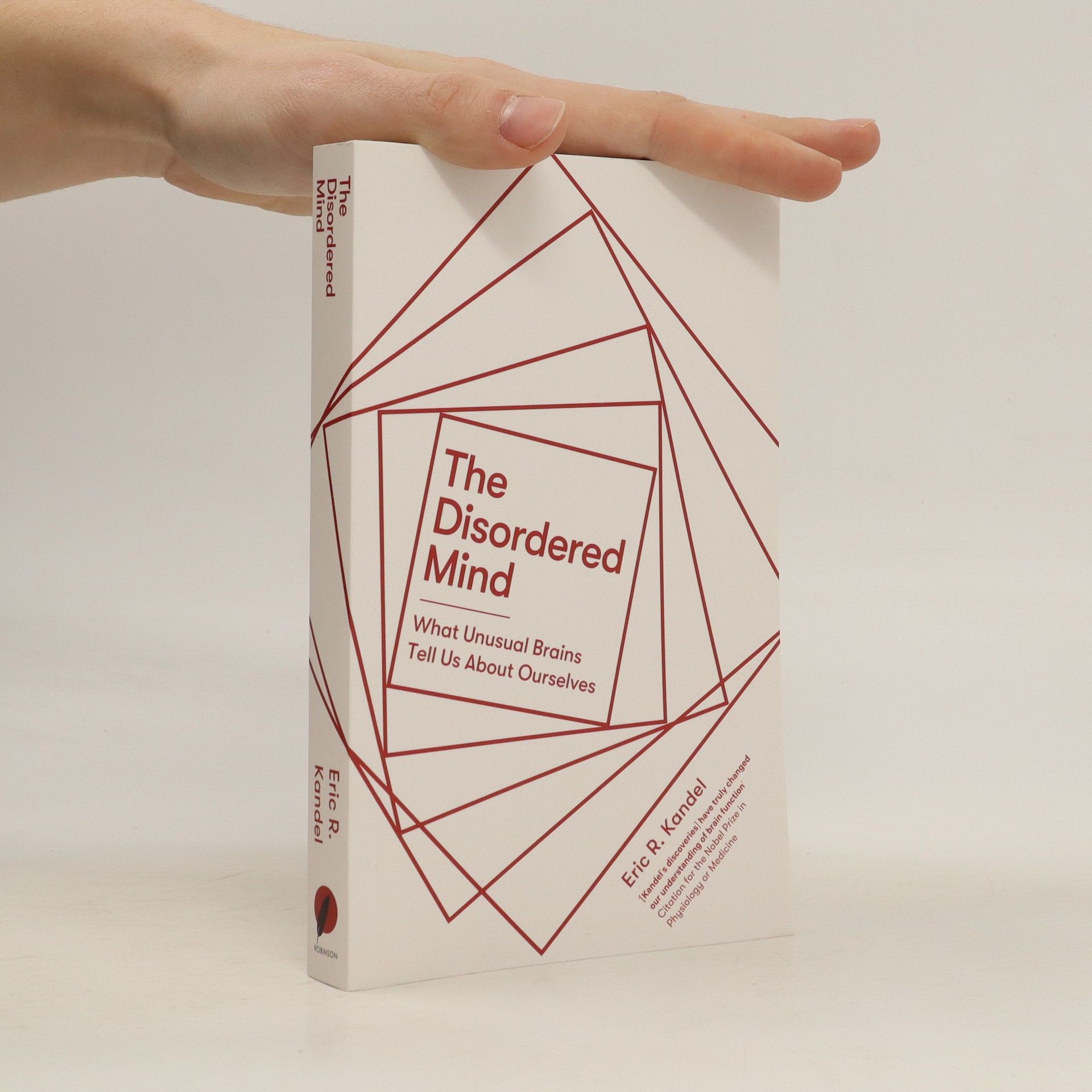

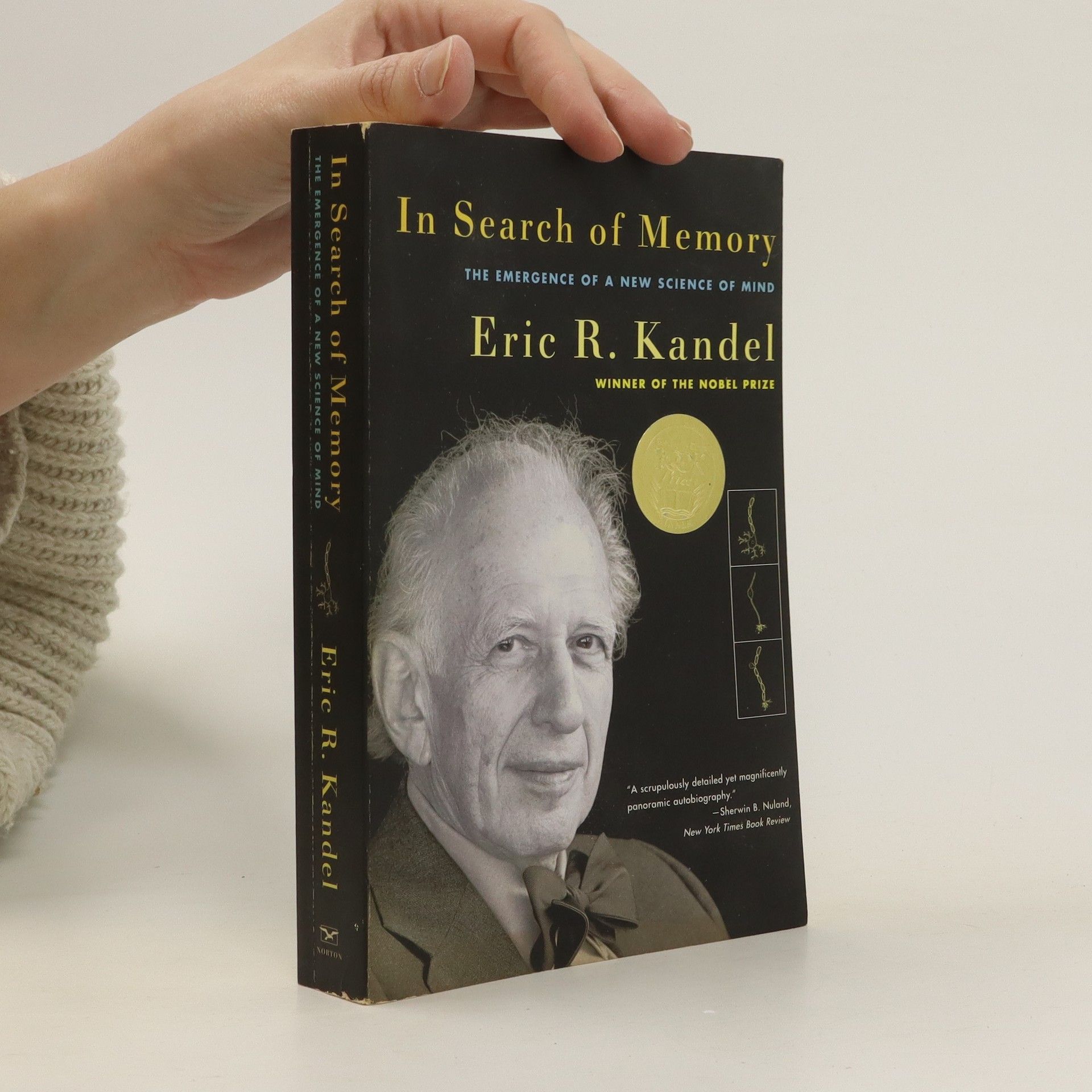
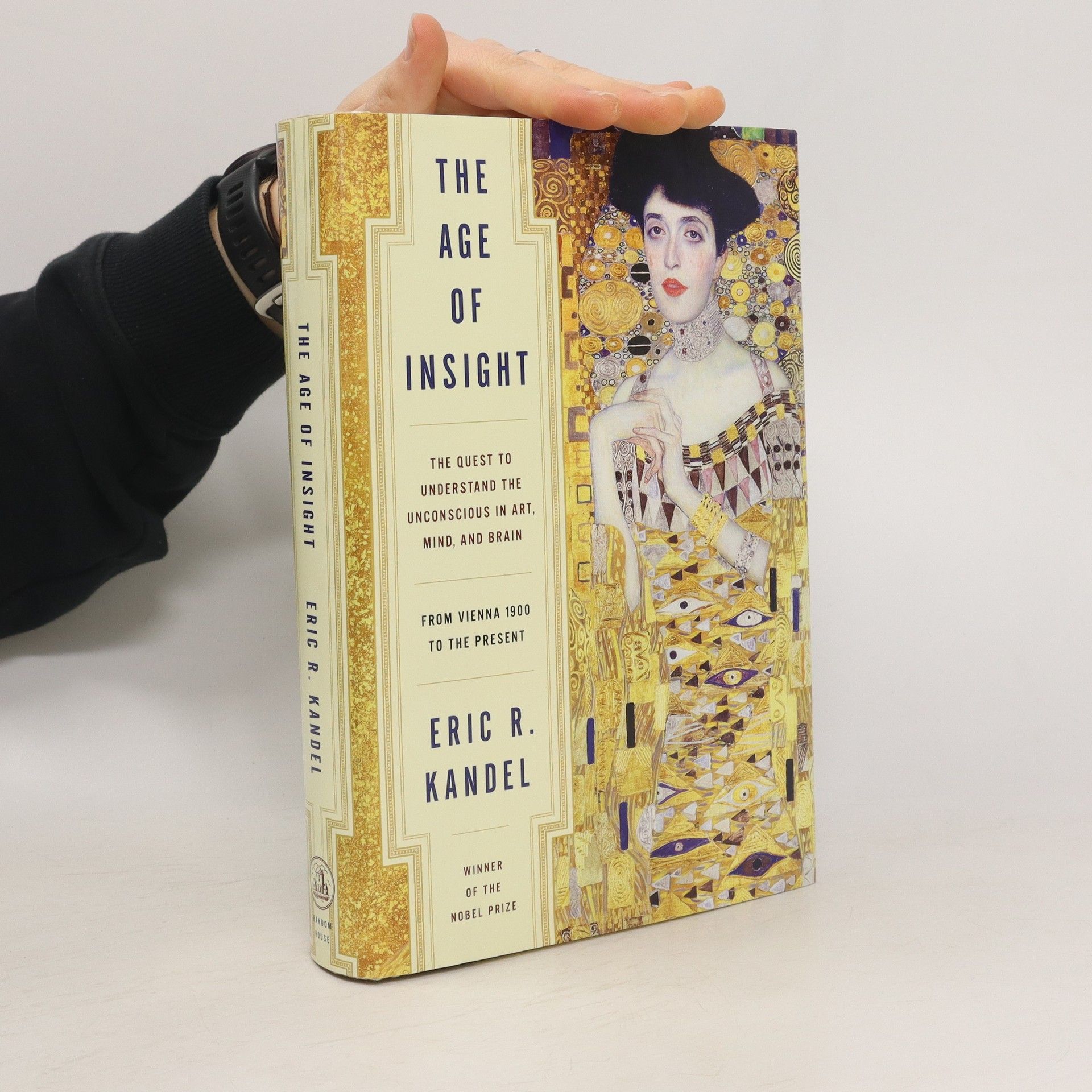


There Is Life After the Nobel Prize
- 112 pages
- 4 hours of reading
Neuroscientist Eric R. Kandel recounts his remarkable career since receiving the Nobel in 2000. He takes readers through his lab's scientific advances as well as his efforts to promote public understanding of science and to put brain science and art into conversation.
The Disordered Mind
- 400 pages
- 14 hours of reading
The Disordered Mind is the definitive statement on all we know about the brain and its associated disorders by the eminent Nobel Prize-winning scientist and professor Eric R. Kandel.
Was heißt es, Mensch zu sein? Nobelpreisträger Eric Kandel über die Grundlagen unserer Identität Was genau geschieht, wenn unser Gehirn nicht mehr „normal“ funktioniert? Wenn es in Unordnung geraten ist, durch Störungen oder Krankheiten wie Alzheimer, Depression oder posttraumatischen Stress? Eric Kandel, einer der weltweit führenden Experten der Gehirn- und Gedächtnisforschung, hat sich in seiner Arbeit immer wieder mit der Frage beschäftigt, inwiefern komplexe menschliche Verhaltensweisen biologische Ursachen haben. In seinem neuen Buch zeigt er an vielen Beispielen, von Angstzuständen bis zur Schizophrenie, von Sucht bis Bipolarität, wie sehr biologische Prozesse unsere Identität prägen. Denn gerade die Störungen, die Abweichungen und Anomalien machen auf beeindruckende Weise sichtbar, was es heißt, Mensch zu sein. Der Titel ist durchgehend vierfarbig und reichhaltig bebildert. Ausstattung: mit vierfarbigen Abb.
Reductionism in Art and Brain Science
- 240 pages
- 9 hours of reading
Kandel's book, with one foot in the humanities and one foot in the sciences, stands comfortably in both. Writing in deceptively simple prose, not unlike the art he writes about, Kandel lucidly states the biological case for how abstract art challenges us to look so that we can see. Jim Coddington, chief conservator, Museum of Modern Art
The Age of Insight. Das Zeitalter der Erkenntnis, englische Ausgabe
- 636 pages
- 23 hours of reading
A brilliant book by a Nobel Prize winner, "The Age of Insight" takes readers to Vienna in 1900, where leaders in science, medicine, and art began a revolution that changed forever how we think about the human mind--our conscious and unconscious thoughts and emotions--and how mind and brain relate to art
Das Zeitalter der Erkenntnis
Die Erforschung des Unbewussten in Kunst, Geist und Gehirn von der Wiener Moderne bis heute
Der Bestseller des Nobelpreisträgers – jetzt im Paperback Was passiert in unserem Gehirn, wenn wir Kunst betrachten? Welche Erinnerungen und Emotionen werden dabei ausgelöst, wie entstehen Empathie oder Kreativität? Und was hat Gustav Klimt damit zu tun? Nobelpreisträger und Bestsellerautor Eric Kandel hat mit Das Zeitalter der Erkenntnis ein faszinierendes und prachtvoll illustriertes Buch geschrieben, in dem er die Geschichte der modernen Wissenschaft des Geistes von der Wiener Moderne bis in unsere Zeit erzählt. Mit seinem neuen Buch entführt uns der Nobelpreisträger Eric Kandel in das Wien Sigmund Freuds, Gustav Klimts und Arthur Schnitzlers. Dort setzten um 1900 die angesehensten Köpfe der Wissenschaft, Medizin und Kunst eine Revolution in Gang, die den Blick auf den menschlichen Geist und die menschliche Wahrnehmung für immer verändern sollte. Die Wahrheit liegt unterhalb der Oberfläche – diese Überzeugung verband die Pioniere der Psychologie und Hirnforschung mit den bedeutendsten Künstlern und Literaten ihrer Zeit. Kandel, selbst einer der weltweit führenden Wissenschaftler auf dem Gebiet der Hirn- und Gedächtnisforschung, lässt diese Atmosphäre wiederauferstehen und zeigt, wie die Entdeckung des Unbewussten entscheidende Anstöße zu neuen Erkenntnissen in der Neurowissenschaft gab. Ausstattung: mit rund 250 farbigen Abbildungen und Grafiken
Der Neurowissenschaftler und Nobelpreisträger Eric Kandel erinnert sich nicht nur an seine Kindheit und Jugend in Wien, der Stadt, aus der er 1939 als Kind jüdischer Eltern vertrieben wurde, sondern erzählt auch von seinem internationalen Werdegang als Forscher, den zunächst vor allem die Geistes- und Kulturwissenschaften interessierten. Die eigenen Kindheitserlebnisse waren es schließlich, die seine Karriere in andere Bahnen lenkten: Die bewussten und unbewussten Erinnerungen an sie waren ausschlaggebend für seine mit dem Nobelpreis gekrönten Forschungen über die Eigenschaften und Leistungen des Gedächtnisses an der Schnittstelle zwischen Medizin und Biologie. Ausgehend von Untersuchungen an Meeresschnecken konnte er Zusammenhänge zwischen Langzeit- und Kurzzeitgedächtnis nachweisen und entdeckte, dass mit der Bildung des Langzeitgedächtnisses immer auch eine anatomische Veränderung einhergeht – eine Erkenntnis, die unter anderem Anlass zur Hoffnung auf ein Medikament gegen Altersvergesslichkeit oder Alzheimer gibt.
"A stunning book." Oliver Sacks Charting the intellectual history of the emerging biology of mind, Eric R. Kandel illuminates how behavioral psychology, cognitive psychology, neuroscience, and molecular biology have converged into a powerful new science of mind. This science now provides nuanced insights into normal mental functioning and disease, and simultaneously opens pathways to more effective healing. Driven by vibrant curiosity, Kandel's personal quest to understand memory is threaded throughout this absorbing history. Beginning with his childhood in Nazi-occupied Vienna, In Search of Memory chronicles Kandel's outstanding career from his initial fascination with history and psychoanalysis to his groundbreaking work on the biological process of memory, which earned him the Nobel Prize. A deft mixture of memoir and history, modern biology and behavior, In Search of Memory traces how a brilliant scientist's intellectual journey intersected with one of the great scientific endeavors of the twentieth century: the search for the biological basis of memory. 50 illustrations.
Dem Nobelpreisträger Eric Kandel gebührt das Verdienst, das bis dahin gänzlich unerkundete Gebiet der Beziehungen zwischen Neurobiologie und Psychoanalyse erschlossen zu haben. Heute ist es eines der spannendsten und zugleich innovativsten Felder der Wissenschaften überhaupt. Die vorliegende Sammlung von Aufsätzen Eric Kandels lädt den Leser zu „einer der wichtigsten, bedeutsamsten und aufregendsten Forschungsreisen unserer Zeit ein“ (Stuart C. Yudofsky) – zu einer Erkundung der Funktionsweise des menschlichen Gehirns und der Möglichkeiten, durch die Psychoanalyse und die Psychiatrie auf diese Einfluß zu nehmen. Der Band, den der Protagonist der deutschen Hirnforschungsdebatte, Gerhard Roth, einleitet und der mit einer sehr persönlichen Einführung Eric Kandels beginnt, bietet einen konzisen Überblick dieser Revolution der psychiatrischen Forschung.

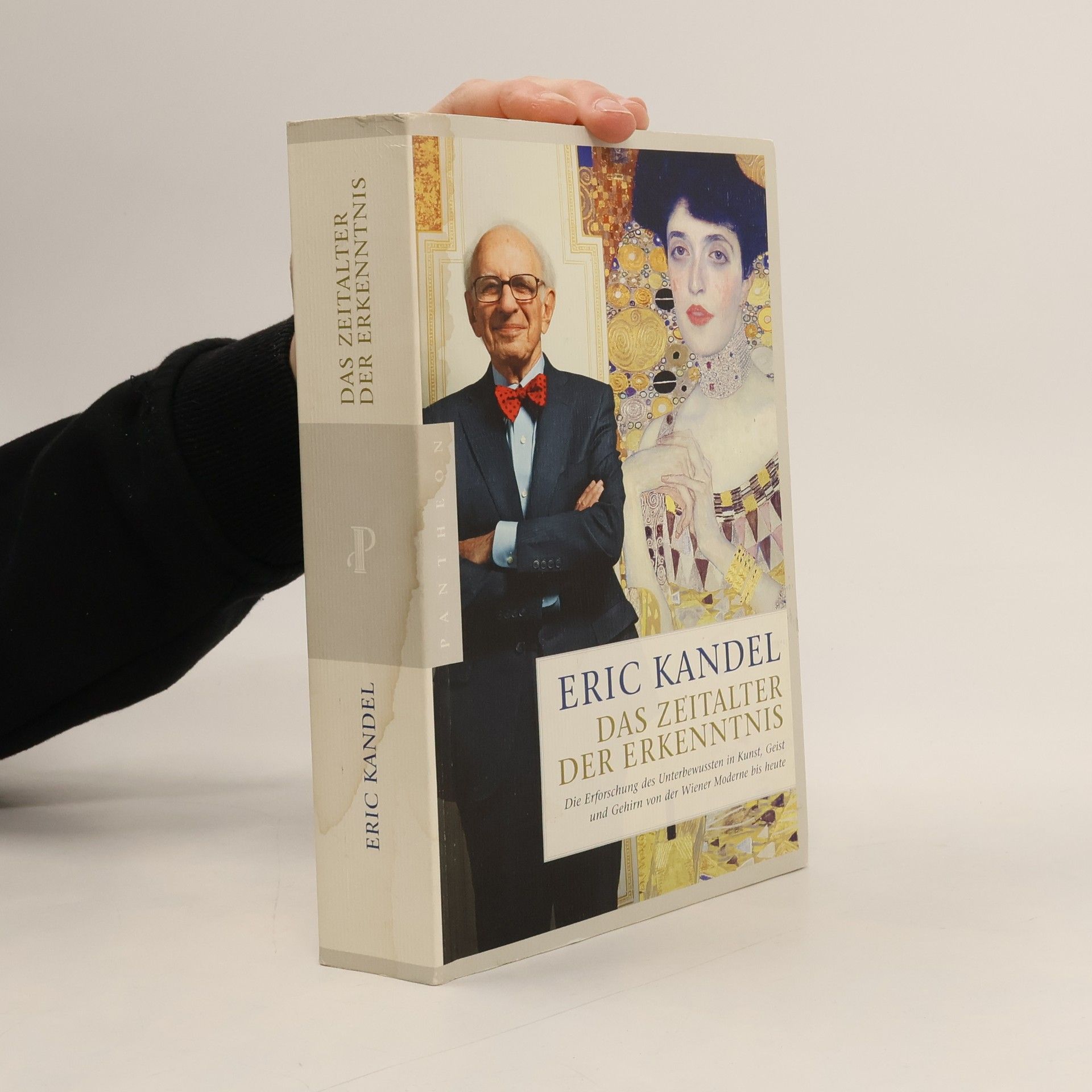
![Im Bann des Gedächtnisses: die Entstehung einer neuen Biologie des Geistes ; [Vortrag im Wiener Rathaus am 30. Mai 2007]](https://rezised-images.knhbt.cz/1920x1920/68399508.jpg)
